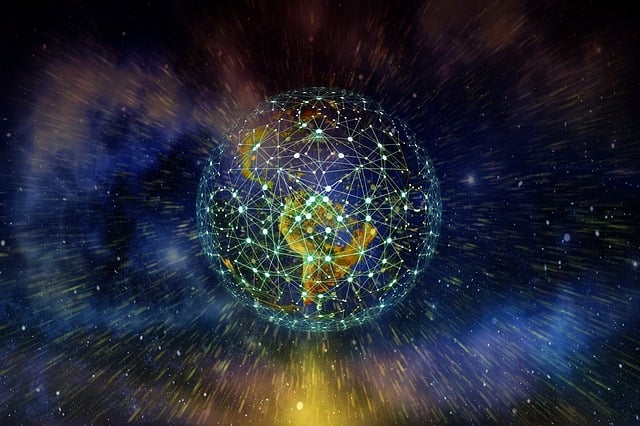As we move further into the 21st century, artificial intelligence (AI) is poised to revolutionize various aspects of our lives. In the next decade, AI will continue to evolve rapidly, with advancements that could reshape industries, society, and even human interaction with technology. Here’s a look at what we can expect:
1. AI Integration into Everyday Life
AI is already embedded in many aspects of our daily routine, from virtual assistants like Siri and Alexa to recommendation systems on Netflix and Amazon. In the next decade, this integration will deepen. Expect to see smarter, more intuitive AI in everything from personal devices to smart homes, healthcare, education, and transportation. AI could assist with everything from managing your home’s energy consumption to helping you navigate your day more efficiently.
2. AI in Healthcare
One of the most exciting and transformative applications of AI will be in healthcare. AI is already showing promise in diagnostics, drug discovery, and personalized medicine. In the next decade, we can anticipate AI systems that can detect diseases earlier, recommend individualized treatment plans based on genetic data, and even provide real-time assistance to healthcare professionals during surgeries or emergency situations.
Robots and AI-driven machines could also help alleviate healthcare worker shortages, particularly in aging populations, by performing routine tasks, monitoring patients, or even delivering telemedicine services.
3. AI and Autonomous Vehicles
The concept of self-driving cars has been one of the most talked-about applications of AI, and while fully autonomous vehicles are still in development, we are likely to see significant progress in the next decade. Autonomous delivery systems, drones, and fully self-driving cars could become commonplace. These systems will improve traffic safety, reduce congestion, and potentially lower emissions by optimizing driving patterns.
However, regulatory, ethical, and technological hurdles remain, and the pace at which these technologies are adopted will depend on advances in AI, as well as public and governmental acceptance.
4. AI and Creativity
Artificial intelligence is no longer just about automating repetitive tasks or processing data. AI’s creative potential is becoming more pronounced, with AI generating artwork, music, literature, and even performing roles in film and television production. Tools like GPT-3, DALL·E, and other generative models have already demonstrated AI’s potential to assist or even create original works.
In the next decade, we can expect AI to become an even more prominent collaborator in creative fields. Whether it’s assisting in writing a screenplay, designing virtual fashion, or generating entirely new genres of art, the line between human and machine-generated creativity may blur even further.
5. Ethical and Societal Challenges
As AI becomes more pervasive, the challenges associated with its use will intensify. Issues like bias, privacy, job displacement, and accountability will require careful consideration. AI systems can reflect the biases present in their training data, leading to concerns about discrimination and fairness. Additionally, the growing presence of AI in decision-making processes—from hiring to criminal justice—will demand new laws and regulations to ensure ethical use.
Job displacement due to automation is another looming challenge. While AI is expected to create new industries and roles, workers in some sectors may face unemployment or need to re-skill. Societies will need to explore solutions like universal basic income (UBI) or other support structures to help those affected by technological advancements.
6. AI in Business and Finance
AI’s impact on business is already significant, and in the next decade, its role will continue to expand. In finance, AI will enhance fraud detection, algorithmic trading, and customer service via chatbots and virtual assistants. Businesses will use AI to predict consumer behavior, optimize supply chains, and create more personalized products and services.
The rise of AI-driven businesses will also lead to new economic paradigms. Startups and established companies alike will rely on AI-powered tools to drive innovation, streamline operations, and expand their reach.
7. AI and Quantum Computing
While quantum computing is still in its infancy, its synergy with AI could unlock breakthroughs in problem-solving and data analysis. In the next decade, advancements in quantum computing may enable AI to solve problems that are currently intractable, from complex molecular simulations to optimizing vast networks of data. This could lead to major innovations in fields like medicine, climate science, and materials engineering.
8. Human-AI Collaboration
AI will not necessarily replace humans but will augment human capabilities. In the workplace, AI will become a powerful assistant, helping professionals with tasks ranging from data analysis to project management. Rather than simply replacing jobs, AI will help people focus on higher-level work that requires creativity, strategy, and emotional intelligence.
This shift will likely lead to a new era of collaboration, where AI systems complement human abilities, enabling workers to be more efficient, productive, and creative than ever before.
9. AI and Regulation
With the rapid development of AI, there will be an increasing need for regulations that address safety, transparency, and accountability. Governments and international organizations will need to develop frameworks for AI deployment, ensuring that it is used responsibly. This will likely involve setting standards for AI systems in areas such as safety, privacy, and human rights.
Global collaboration will be essential to create guidelines that address cross-border challenges and ensure AI is used for the benefit of humanity, rather than to exacerbate inequality or oppression.
Conclusion: An Era of Transformation
The next decade will be a defining period in the evolution of AI. We will witness the deepening of AI’s integration into nearly every facet of society, from healthcare and transportation to entertainment and business. While AI will undoubtedly bring about enormous benefits, it will also present challenges that require careful management.
To navigate this future successfully, it will be crucial to focus on responsible innovation, ethical decision-making, and the development of a framework that prioritizes the well-being of humanity. In the next decade, AI may not just change the world—it could fundamentally redefine what it means to be human.


